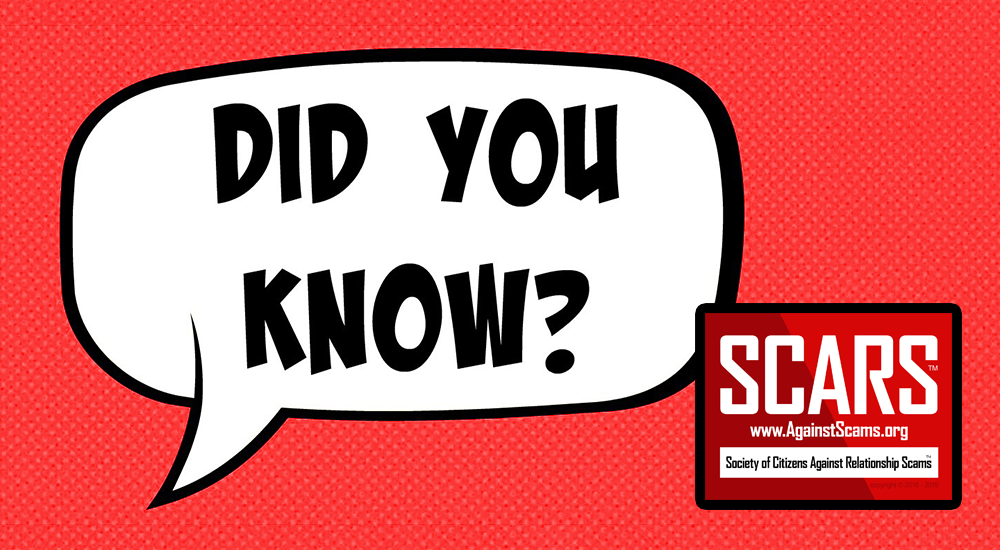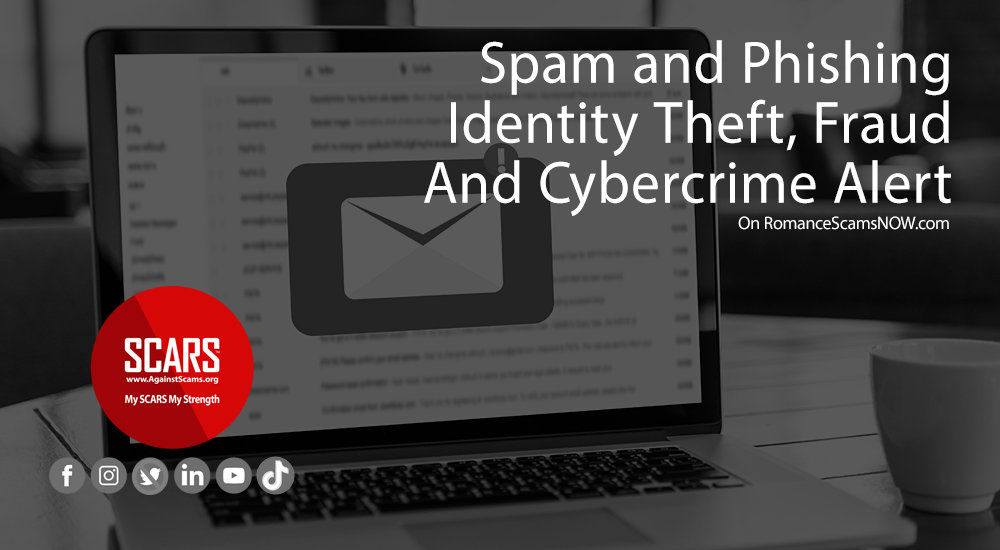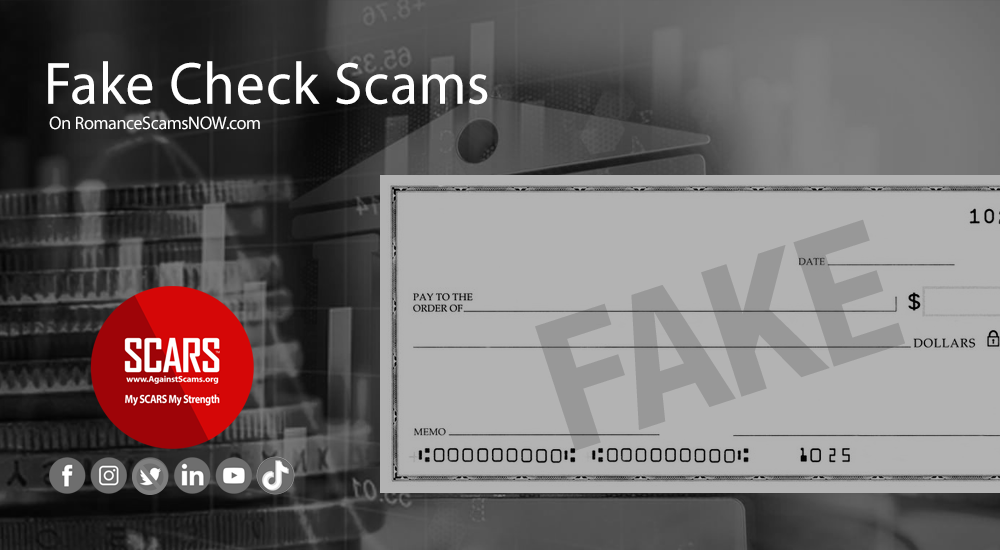
SCARS Institute’s Encyclopedia of Scams™ Published Continuously for 25 Years

The Problem With Fake Checks & Job Scams!
A BBB Insight
Presented by SCARS
How Big Of A Problem Are Fake Checks?
Two Things Everyone Needs To Know About Checks:
- Having funds credited to a bank account does not mean the check is valid. Federal banking rules require that when someone deposits a check into an account, the bank must make the funds available right away – within a day or two. But when the check works its way back to the bank that supposedly issued the check and it is discovered to be counterfeit, the bank has the right to recover the money from the account holder.
- Cashier’s checks and postal money orders can be forged. A cashier’s check is guaranteed by a bank, drawn on the bank’s own funds and signed by a cashier.
-
- Cashier’s checks are treated as guaranteed funds because the bank, rather than the individual account holder, is responsible for paying the amount of the check.
- Cashier’s checks are commonly required for real estate and brokerage transactions. If a person deposits a cashier’s check, the person’s bank must credit the account by the next day. The same holds true for postal money orders. But they can be counterfeit.
Common Fraud That Employs Fake Checks:
The majority of complaints about fake checks involve some sort of employment. But for fraudsters, the possibilities are almost endless, so the frauds covered below are far from exclusive.
Again, the central message is the same – just having the money credited to a checking account does not mean the check is good, and you should never have to pay in advance to get a job.
Job Scams Involving Fake Checks
While 36% of those responding to a BBB survey said that they had encountered fake checks scams, the actual number is likely higher. Fake checks are a growing fraud problem with a variety of different job scams employing them.
Bogus check fraud was the subject of a 2018 BBB study. Most fake checks are business checks, often stolen by scammers from mail and then altered by Photoshop or similar programs. They usually look professional, and victims believe they are real. Scammers may change the phone number of the business on the check so that it is answered by another scammer if someone calls to see if it is legitimate.
The FTC also gave fake checks a hard look in a report issued in February 2020, which found that 51% of those reporting a fake check were victims of a job scam. The FTC also similarly reported a big increase in complaints involving fake checks, finding that they increased 65% between 2015 and 2019.
Since then, the number of reports of fake checks has increased substantially, even though the overall use of checks in general use has gone down. The banking system updates fake check fraud data every two years. As the previous BBB study on fake checks noted, in 2016 fake checks cost the banks $789 million that they could not recoup from customers, up 25% from two years before. The newest data, released in January 2020 but providing results for 2018, shows that over two years these losses went up to $1.3 billion, a 40% increase.
Banks are obviously trying hard to detect and prevent fake checks from entering their systems. They report that they were effectively able to stop 91% of these checks, preventing $13.5 billion in annual potential losses. Despite these efforts, it is clear that fake check fraud continues to be a growing problem.
Summary
Never remove money from your account after you deposit a Cashier’s Check until your bank tells you it has cleared. Even if they credit your account, it does not mean it has cleared – speak with your bank and confirm it has.
Any job that asks you to deposit cashier’s checks IS A SCAM! Period!
Our thanks to the Better Business Bureau for portions of the above.
-/ 30 /-
What do you think about this?
Please share your thoughts in a comment below!
LEAVE A COMMENT?
Recent Comments
On Other Articles
- Arwyn Lautenschlager on Love Bombing And How Romance Scam Victims Are Forced To Feel: “I was love bombed to the point that I would do just about anything for the scammer(s). I was told…” Feb 11, 14:24
- on Dani Daniels (Kira Lee Orsag): Another Scammer’s Favorite: “You provide a valuable service! I wish more people knew about it!” Feb 10, 15:05
- on Danielle Delaunay/Danielle Genevieve – Stolen Identity/Stolen Photos – Impersonation Victim UPDATED 2024: “We highly recommend that you simply turn away form the scam and scammers, and focus on the development of a…” Feb 4, 19:47
- on The Art Of Deception: The Fundamental Principals Of Successful Deceptions – 2024: “I experienced many of the deceptive tactics that romance scammers use. I was told various stories of hardship and why…” Feb 4, 15:27
- on Danielle Delaunay/Danielle Genevieve – Stolen Identity/Stolen Photos – Impersonation Victim UPDATED 2024: “Yes, I’m in that exact situation also. “Danielle” has seriously scammed me for 3 years now. “She” (he) doesn’t know…” Feb 4, 14:58
- on An Essay on Justice and Money Recovery – 2026: “you are so right I accidentally clicked on online justice I signed an agreement for 12k upfront but cd only…” Feb 3, 08:16
- on The SCARS Institute Top 50 Celebrity Impersonation Scams – 2025: “Quora has had visits from scammers pretending to be Keanu Reeves and Paul McCartney in 2025 and 2026.” Jan 27, 17:45
- on Scam Victims Should Limit Their Exposure To Scam News & Scammer Photos: “I used to look at scammers photos all the time; however, I don’t feel the need to do it anymore.…” Jan 26, 23:19
- on After A Scam, No One Can Tell You How You Will React: “This article was very informative, my scams happened 5 years ago; however, l do remember several of those emotions and/or…” Jan 23, 17:17
- on Situational Awareness and How Trauma Makes Scam Victims Less Safe – 2024: “I need to be more observant and I am practicing situational awareness. I’m saving this article to remind me of…” Jan 21, 22:55
ARTICLE META
Important Information for New Scam Victims
- Please visit www.ScamVictimsSupport.org – a SCARS Website for New Scam Victims & Sextortion Victims
- Enroll in FREE SCARS Scam Survivor’s School now at www.SCARSeducation.org
- Please visit www.ScamPsychology.org – to more fully understand the psychological concepts involved in scams and scam victim recovery
If you are looking for local trauma counselors please visit counseling.AgainstScams.org or join SCARS for our counseling/therapy benefit: membership.AgainstScams.org
If you need to speak with someone now, you can dial 988 or find phone numbers for crisis hotlines all around the world here: www.opencounseling.com/suicide-hotlines
A Note About Labeling!
We often use the term ‘scam victim’ in our articles, but this is a convenience to help those searching for information in search engines like Google. It is just a convenience and has no deeper meaning. If you have come through such an experience, YOU are a Survivor! It was not your fault. You are not alone! Axios!
A Question of Trust
At the SCARS Institute, we invite you to do your own research on the topics we speak about and publish, Our team investigates the subject being discussed, especially when it comes to understanding the scam victims-survivors experience. You can do Google searches but in many cases, you will have to wade through scientific papers and studies. However, remember that biases and perspectives matter and influence the outcome. Regardless, we encourage you to explore these topics as thoroughly as you can for your own awareness.
Statement About Victim Blaming
SCARS Institute articles examine different aspects of the scam victim experience, as well as those who may have been secondary victims. This work focuses on understanding victimization through the science of victimology, including common psychological and behavioral responses. The purpose is to help victims and survivors understand why these crimes occurred, reduce shame and self-blame, strengthen recovery programs and victim opportunities, and lower the risk of future victimization.
At times, these discussions may sound uncomfortable, overwhelming, or may be mistaken for blame. They are not. Scam victims are never blamed. Our goal is to explain the mechanisms of deception and the human responses that scammers exploit, and the processes that occur after the scam ends, so victims can better understand what happened to them and why it felt convincing at the time, and what the path looks like going forward.
Articles that address the psychology, neurology, physiology, and other characteristics of scams and the victim experience recognize that all people share cognitive and emotional traits that can be manipulated under the right conditions. These characteristics are not flaws. They are normal human functions that criminals deliberately exploit. Victims typically have little awareness of these mechanisms while a scam is unfolding and a very limited ability to control them. Awareness often comes only after the harm has occurred.
By explaining these processes, these articles help victims make sense of their experiences, understand common post-scam reactions, and identify ways to protect themselves moving forward. This knowledge supports recovery by replacing confusion and self-blame with clarity, context, and self-compassion.
Additional educational material on these topics is available at ScamPsychology.org – ScamsNOW.com and other SCARS Institute websites.
Psychology Disclaimer:
All articles about psychology and the human brain on this website are for information & education only
The information provided in this article is intended for educational and self-help purposes only and should not be construed as a substitute for professional therapy or counseling.
While any self-help techniques outlined herein may be beneficial for scam victims seeking to recover from their experience and move towards recovery, it is important to consult with a qualified mental health professional before initiating any course of action. Each individual’s experience and needs are unique, and what works for one person may not be suitable for another.
Additionally, any approach may not be appropriate for individuals with certain pre-existing mental health conditions or trauma histories. It is advisable to seek guidance from a licensed therapist or counselor who can provide personalized support, guidance, and treatment tailored to your specific needs.
If you are experiencing significant distress or emotional difficulties related to a scam or other traumatic event, please consult your doctor or mental health provider for appropriate care and support.
Also read our SCARS Institute Statement about Professional Care for Scam Victims – click here to go to our ScamsNOW.com website.
















Thank you for your comment. You may receive an email to follow up. We never share your data with marketers.